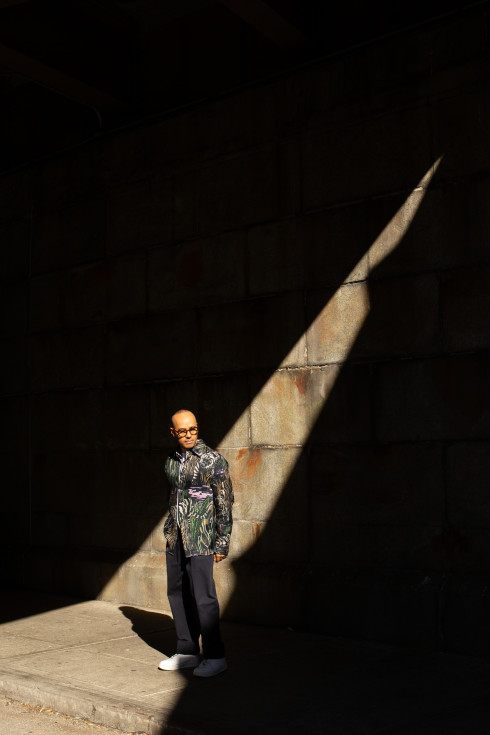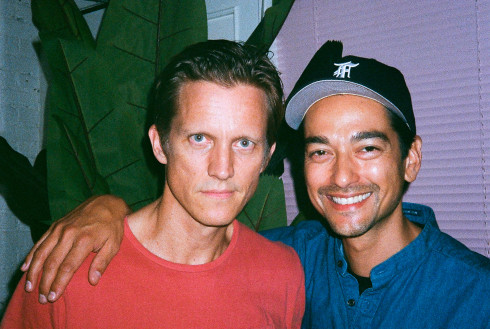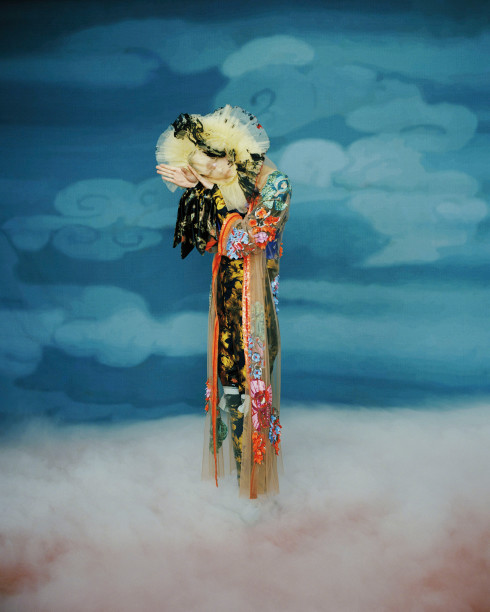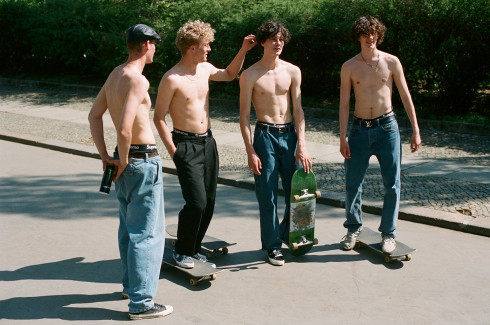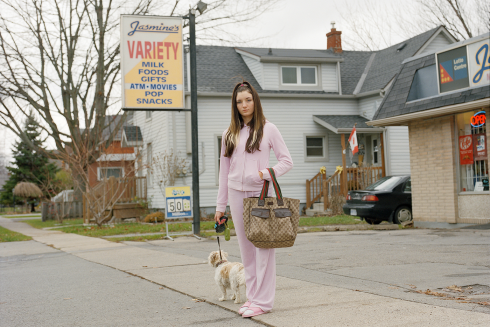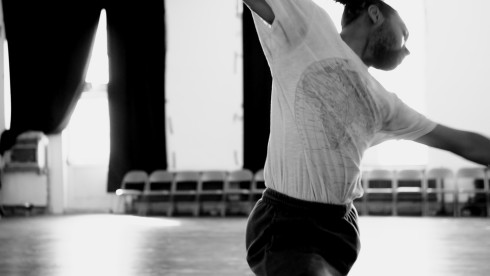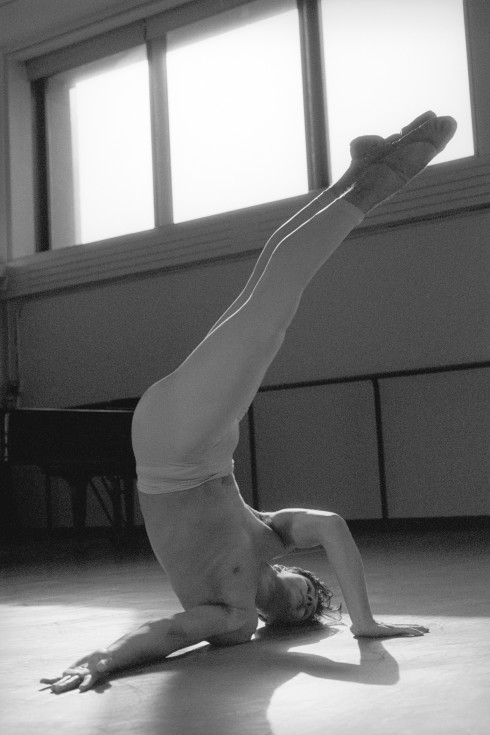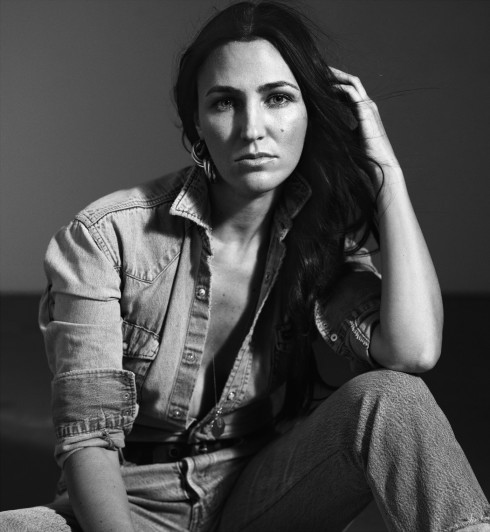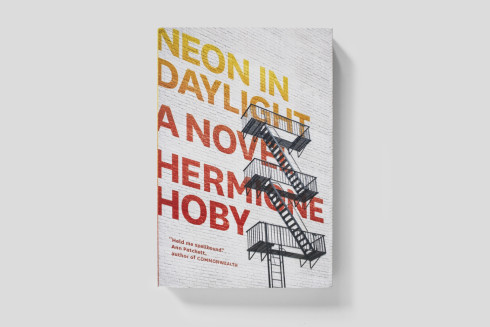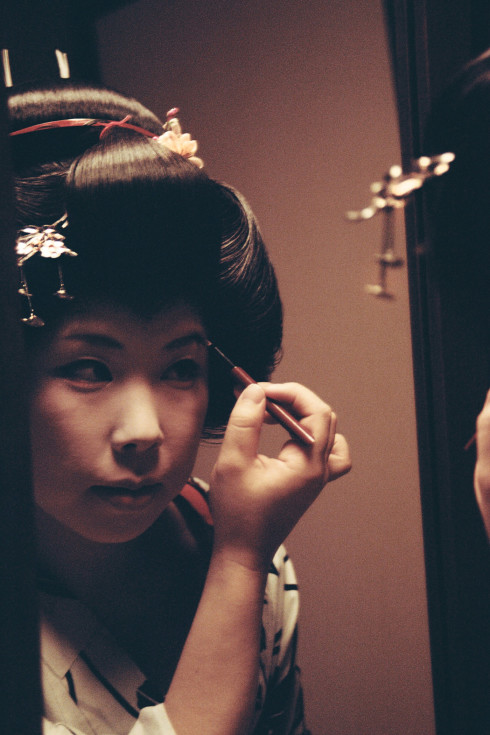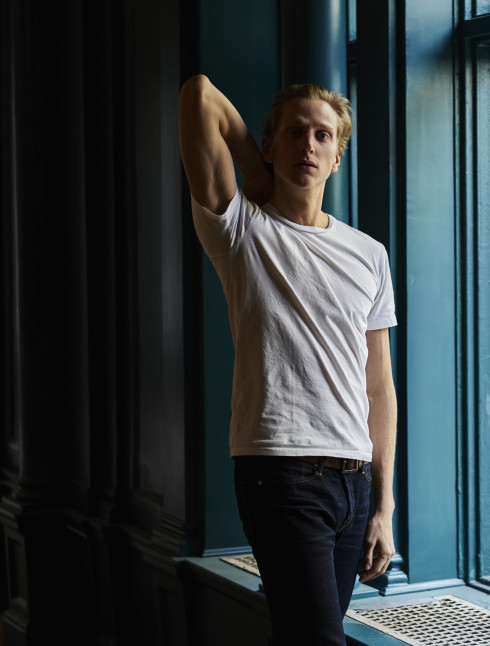MADS MATTHIESEN
“Men can’t be trusted,” Dennis’ hawk-eyed mother tells him at dinner. He looks up from his roast. Is she talking about him? “You remind me so much of your father,” she continues. The lines are from “Dennis,” an eighteen-minute short film about an introvert bodybuilder who at thirty-eight years of age—and three hundred pounds of muscle—is still an innocent boy in heart and soul. He lives with his controlling mother in a small town with an unpronounceable name, just outside of Copenhagen. “Dennis” is a Danish film, but despite the country’s humble population of 5.5 million people, the short has surpassed four million views on YouTube. It premiered at Sundance in 2008, and four years later, Mads Matthiesen, the film’s director, returned to the festival with Teddy Bear, a full-length feature about the same character.
This time, Dennis goes to Thailand to find love. “It is a lot easier to get women’s attention over there,” his uncle Bent tells him. Bent is himself married to Oi, a Thai woman, though his sister—Dennis’ mother—does not approve. Without giving anything away, Dennis decides to go. He tells his mother he is going to Germany for a bodybuilding contest. Instead, he goes to the Thai beach resort of Pattaya.
What follows is the moving story of a boy who becomes a man through the love of a woman. Like The Hunchback of Notre Dame, it is a romance with an unlikely pair, and one that questions Western presuppositions about life, love, family, and class. “Things are seldom as they appear from the outside,” Matthiesen says. “In Teddy Bear, I attempt to play around with people’s prejudices, and turn them on their head.”
Most of the characters in Teddy Bear are played by “real people” in their natural environments, and Dennis is portrayed by the professional bodybuilder Kim Kold. “Street casting” is something of a recent trend in Scandinavian cinema, as filmmakers strive for an increased sense of realism, and Pusher, Sebbe, and Snabba Cash are some pioneer works. “I didn’t know if I could do it,” Matthiesen says about casting Dennis. “I didn’t know if I could find a bodybuilder in Denmark. Bodybuilding is not that big, and Denmark is very small. We probably have twenty-something bodybuilders, and I thought, Can one of these guys act?” Finally, Matthiesen came across a picture of Kold. “He has the right look,” the director said to his casting agent. “Let’s see if he can act.” Luckily, he could. The success of “Dennis” gave Matthiesen the confidence to turn the story into what would be his first feature film, and Teddy Bear earned the Director’s Award at Sundance this year.
Perhaps it should be noted that this is not your usual Hollywood love story. The prejudice against men who go to Thailand to find women is that they simply buy their loves and bring them back home. Though alien to American audiences, this type of matchmaking is surprisingly common for the Western countries that are closer to the region. Most of Thai society that does not support itself through agricultural means nurses on the hordes of European, Russian, and Australian tourists who come to vacation, with various degrees of moral intentions.
When Dennis checks into his hotel in Thailand, the lady behind the counter asks him if he would like to pay for a girl now or later. It catches Dennis off-guard. Does she know why he is there? Perhaps more curiously, why would he pay for a woman’s company? “In modern-day Denmark,” Matthiesen says, “love and family are no longer just about money and survival. People in the West have other criteria when they seek out love than purely financial considerations. In Thailand, things are different.” Needless to say, Dennis says that he is alone. He is not there to get laid. Even when given the opportunity, he shies away like a young boy whose relation to sex is one of overwhelming fear and inhibited curiosity.
“People who see this from the outside have a tendency to say, ‘This is not love, this is about money,’ ” Matthiesen says, “but when you go there and you learn more about the culture, then you also see the good things that happen.” Not all Thai women who fall for Western men are paid to do so, and for some, it is a ticket to a better life. “The poor girls in Pattaya,” Matthiesen says, “they are looking for someone to take care of them and take care of their families… and maybe that’s also a way to go about love.”
For his next feature, Matthiesen has set his eyes on the fashion industry. Like Teddy Bear, it will be a transnational story of love and identity. “I like watching films that are entertaining,” Matthiesen says, “but they should also make me think. I think that’s important. Especially these days, when all the superhero movies get people to the cinemas and the more interesting work goes unseen. I think it’s our obligation in life to make an effort and learn something and not only go to get amused.” With Teddy Bear, Matthiesen achieves both.
Teddy Bear opens on Wednesday at Film Forum, 209 West Houston Street, New York.
